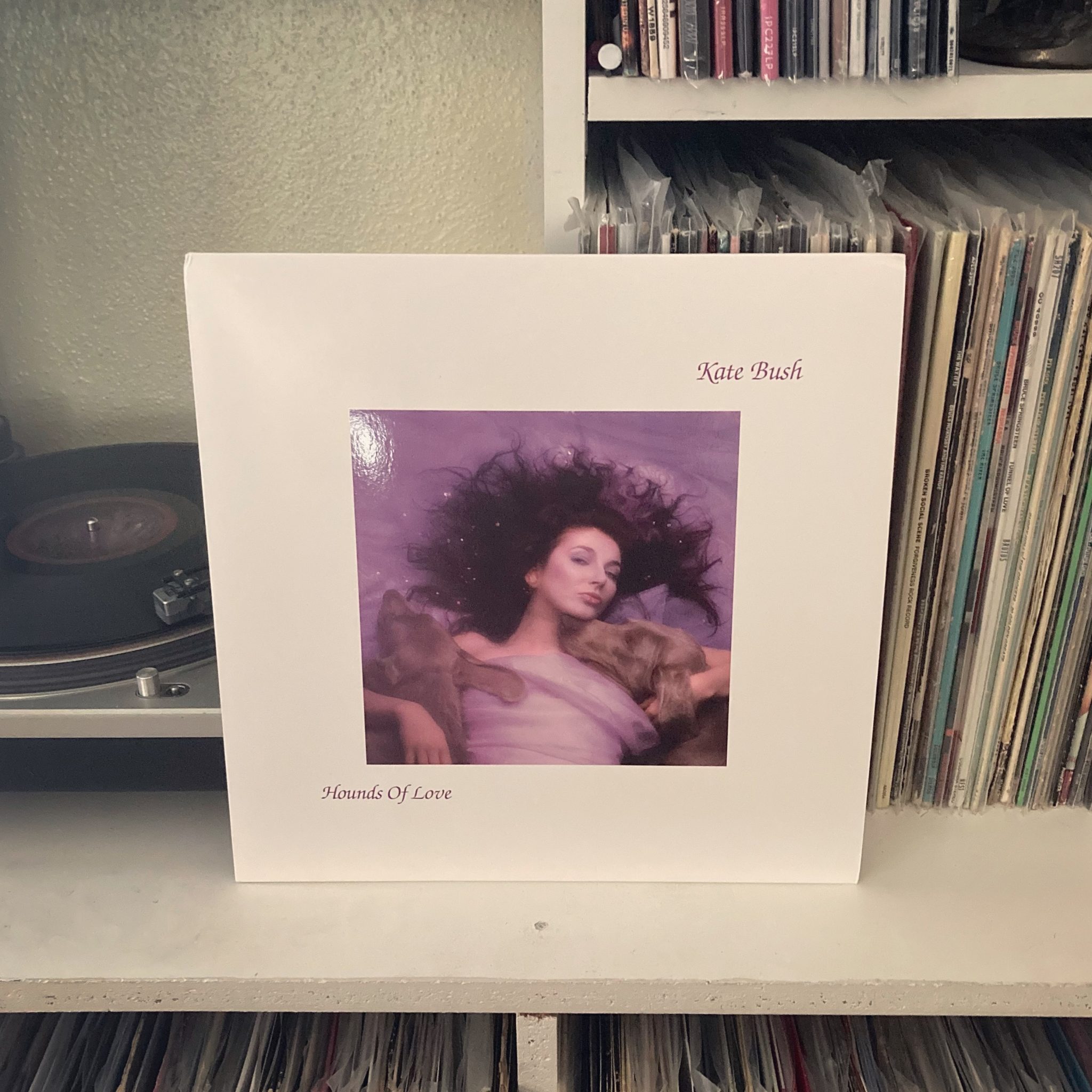 The art world is filled with archetypes. Take for example how every precocious pop starlet from Britney to Lady Gaga to Ariana Grande has garnered comparisons to Madonna.
The art world is filled with archetypes. Take for example how every precocious pop starlet from Britney to Lady Gaga to Ariana Grande has garnered comparisons to Madonna.
On the other hand, it’s almost impossible to overhear any discussion about quirky art pop femme fatales (see: Bjork, St. Vincent, Regina Spektor) without the name Kate Bush being dropped somewhere.
But for all my love of the inventive artists often compared to her, I hadn’t actually spent any time with her work until a few months ago when I decided to spring for (what I understand to be) her seminal record, Hounds of Love. That leap of faith was rewarded tenfold.
The decision came as a result of a friend posting the video for “Running Up That Hill,” a song that is hauntingly beautiful in a way few songs have achieved. The track is just as strong in context, but the rest of the album delivers on the promise of that track.
“Hounds of Love” follows it up with a moody dance party that tells me she must have been listening to plenty of post-punk. But that moodiness is undercut with a wry humor, most seen when Bush barks in the lyrics (and decades before Knocked Loose, I might add). “The Big Sky” has a stadium-ready anthemic feel that feels like Joshua Tree era U2 a couple years earlier.
The triumph is short lived though. “Mother Stands for Comfort” is sparse and desperate, its piano line paired with ambient swells and gated drums. “Cloudbusting” hopes preciously with bouncing synth strings as she prays, “I just know that something good is gonna happen.” Martial drums join the procession, giving the track a march like feel.
While the A side is a collection of wonderful pop tunes, the B side, separately titled The Ninth Wave is a conceptually suite telling of a woman adrift at sea. The pieces are dramatic and ornately orchestrated, ranging from pensive and still to menacing and urgent, including some moments of traditional folk music of the British Isles and Georgian chants.
This mix of artistic synthpop and folk influences reminds me an awful lot of what acts like Talk Talk and Peter Gabriel were doing in the mid-80s. In many ways, this album feels like the spiritual partner to Peter Gabriel’s So, a feminine companion to the brash, sardonic masculinity that informs that album. It wasn’t a surprise then to realize that she’s on that record. It is in fact Kate Bush’s voice on Gabriel’s tender ballad “Don’t Give Up.”
And as much as I love So (and friend, I freaking love so), I am at once elated to have found this album and disappointed that it took me so long.